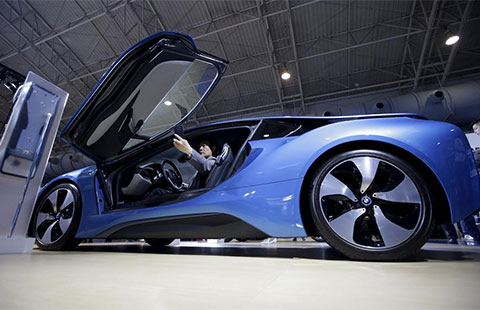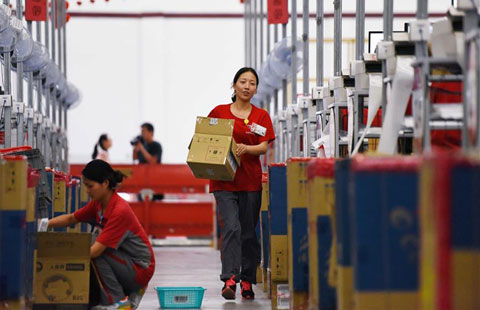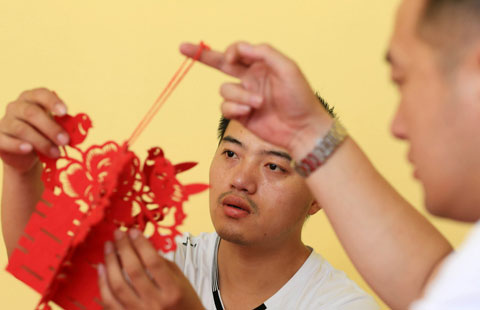Didi arms itself with funding for war with Uber
By Meng Jing (China Daily) Updated: 2016-06-17 10:26Didi Chuxing has completed a $7.3 billion round of financing-a huge chunk of money that will give China's largest ride-hailing platform a bigger war chest to fend off Uber Technologies Inc in its home market.
The Beijing-based Didi said in a statement that it raised $4.5 billion in equity funding from new investors including Apple Inc as well as existing investors, including the country's internet giant Alibaba Group Holding Ltd and Tencent Holdings Ltd.
In addition to the equity investment, the Beijing-based company also landed a debt package of as much as $2.5 billion led by China Merchants Bank Co and a long-term debt investment of 2 billion yuan ($304 million) from the country's top insurer China Life Insurance Co. It didn't reveal its valuation after the new round of funding but said it now has $10.5 billion of disposable funds.
The announcement came weeks after its United States rival Uber said it has raised $3.5 billion from Saudi Arabia's sovereign wealth fund, which pushed Uber's fundraising to $6 billion.
Analysts said that both Didi Chuxing and Uber use heavy discounts and cashback coupons to build and retain a gigantic clientele in hopes of pre-empting future competition.
"It remains to be seen how long they can keep up with this business model, but it is obvious that they could use some of their investors' money to keep afloat," said Travis Wu, vice-president and research director at Forrester Research Inc.
Didi, which has already expanded to more than 400 Chinese cities, has been gradually reducing its subsidies for certain cities and certain services.
But, it needs to spend more to improve user experience to keep its Chinese users loyal, especially in face of the competition brought by Uber, said Zhang Xu, analyst with the Beijing-based internet constancy Analysis International.
Emil Michael, chief business officer of Uber, said on Wednesday that China is one of the most important markets for the ride-hailing giant globally, adding it has completed more trips in China than in its home market-the United States.
It claimed its market share in China has surged from about 1 percent to 30 percent.
Compared with Didi's dominant position in China, Uber has expanded to more than 60 Chinese cities and it is on track to hit 100 cities by the end of this year.
- China's bond issuance hits 3 trillion yuan in May
- Wanda shoots for basketball success
- HK outstrips London, becoming world's most expensive office market: report
- China preparing for new era of space economy
- Zhejiang businessmen sharing development dream overseas
- Bosses of biggest US groups suffer free falls to their pensions
- All you need is bullish ambition
- Best Employers China 2016 winners demonstrate growth rates


















